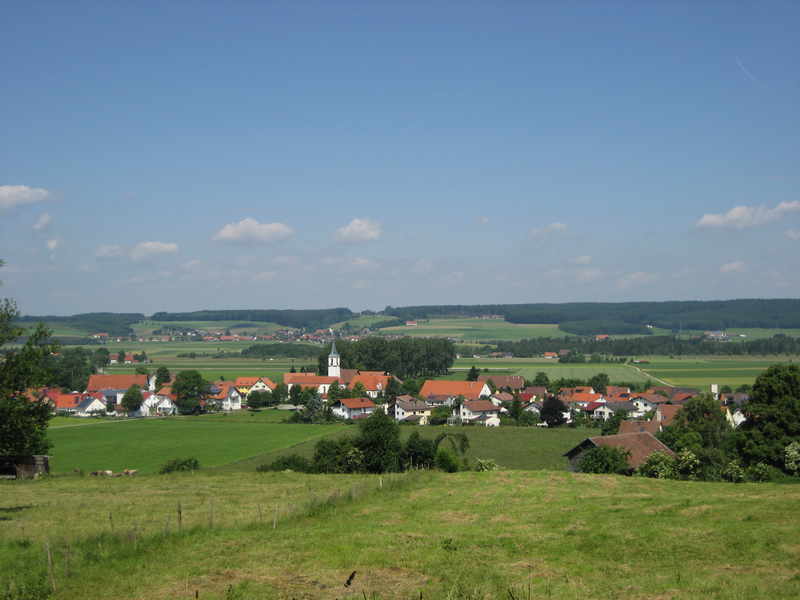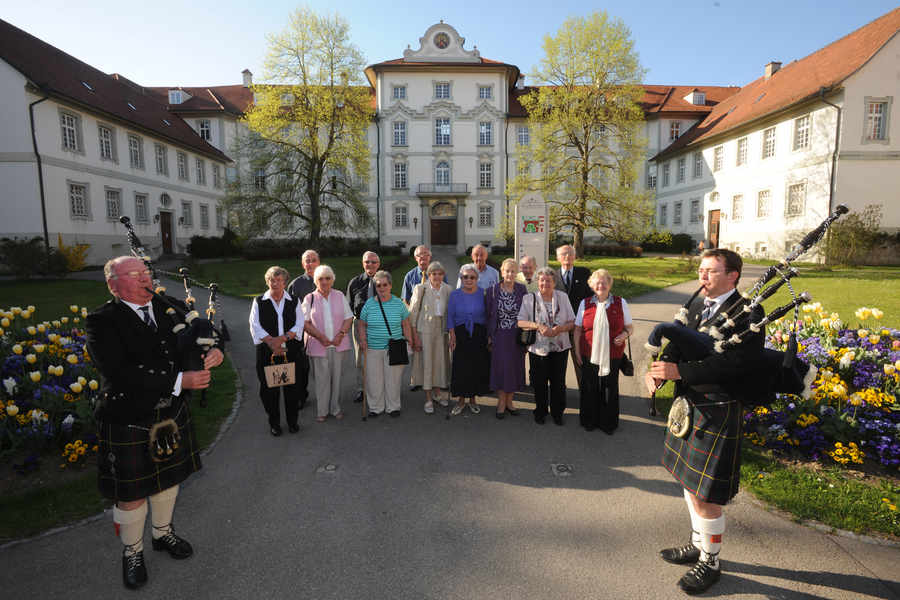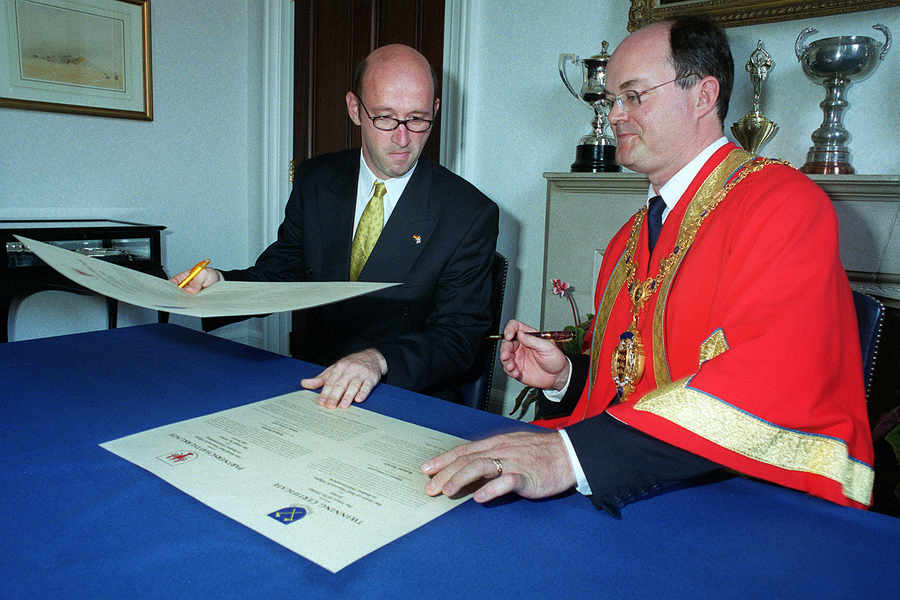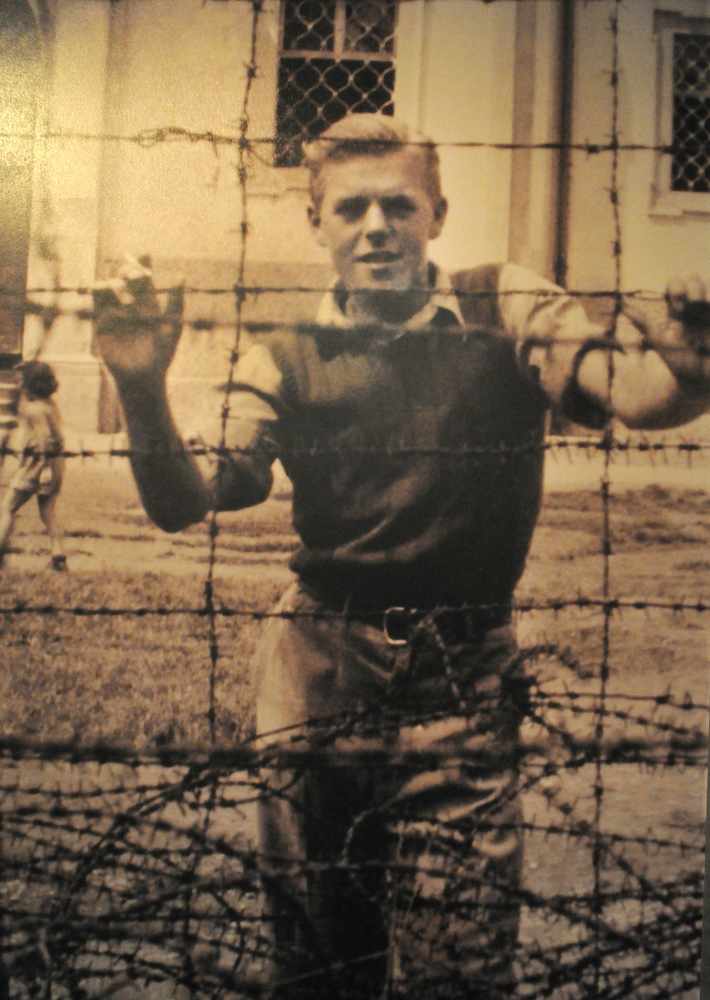- Cash needed urgently so internees can make final trip to Bad Wurzach.
- Islanders were held in an internment camp there during the Occupation.
- Group making final trip there next month have now encountered travel issues.
ORGANISERS of a final visit to Germany for Jersey internees who survived detention in the country during the Second World War have made a desperate plea for funds after the excursion hit another stumbling block.
Earlier this year Angela Francey, who is leading the trip to Bad Wurzach, where Channel Islanders were held in an internment camp during the Occupation, called for help after encountering travel difficulties for the 70-strong group.

- Bad Wurzach is a small town in southern Germany and is part of the Ravensburg district.
- The towns castle Schloss Bad Wurzach was used to detain Channel Islanders during the Occupation.
- Bad Wurzach is the only mud spa town in the southern Allgäu region of Baden Württemberg, the largest of Germanys 16 federal states.
- Founded in 1333, the town is 40 miles from Lake Constance and the border with Switzerland.
- In 1950 the town was given the prefix Bad, which means that the town is an official spa treatment destination.
- After the development of the towns urban spa service in 1948 Bad Wurzach became known as a major health resort within the region.
- It has thermal spas, indoor and outdoor swimming pools, hiking trails, several sports grounds and a petting zoo.
- It covers an area of just over 70 square miles and has a population of 14,167.
- Bad Wurzach lies on the edge of the Wurzach marshes nature conservation area, the largest intact highland marsh in central Europe, formed more than 10,000 years ago by the evaporation of an Ice Age glacial lake
Plans were thought to have been finalised towards the end of February, when Flybe offered to fly a direct route to the nearest airport in Friedrichshafen.
However, since then the company has said it is unable to find a crew for the flight.
To ensure that the trip goes ahead, Mrs Francey has now engaged a Swiss firm to charter a plane, but the emergency back-up plan is costing £8,000 more than the previous arrangement.
She is hoping that the States and generous Islanders might be able to help to keep the costs down for the former internees hoping to enjoy a final visit to the German town.
‘I have had to take a huge leap of faith and agree to charter a plane brokered by a Swiss-based company,’ she said. ‘However, the plane costs £8,000 more than the Flybe aircraft, which leaves the twinning committee wondering how to pay for the deficit. We are in urgent need now of finding some additional funding.
‘These former internees and their families never received a penny in compensation.
Over the years they have headed up the reconciliation process which has led to a successful twinning since 2002.
‘They have always paid their own fares and accommodation on previous trips. But due to the poor air links to Germany and Switzerland, getting them to Bad Wurzach for their final Liberation Day celebration is proving to be a huge challenge.’
Mrs Francey added that she hoped the States might be able to offer some assistance. She also plans to write to the Bailiff’s Chambers to seek assistance.
‘I do feel very strongly about this,’ she said. ‘Those in the group are all paying £320, which is about as much as they can afford.
‘I do truthfully think the States could help with the shortfall – even if they paid £5,000 and the committee managed to find the rest.
‘It would be an incredible gesture if the States of Jersey or a kind benefactor could find some funding to help these internees.’
The trip is due to take place between 25 and 29 April.
Anybody who may be able to help can contact Mrs Francey by emailing angie.francey@yahoo.co.uk or calling 07797 795911.

JERSEY’S unique connection with Bad Wurzach began during the Second World War when 618 men, women and children were removed from the Island and moved to the German town.
They became internees of the camp as they were UK born or had UK-born parents and over the course of the war more than 2,000 Channel Islanders were detained in Germany for nearly three years.
Those in Bad Wurzach, where supplies were scarce, were liberated on 28 April 1945. Guernsey internees, who were kept in the nearby camp of Biberach, were freed a few days earlier on 23 April of the same year.
In the years that followed a group of Islanders including former internees began to return to Bad Wurzach each year in celebration of their liberation.
They forged ties with the region and after forming the St Helier Bad Wurzach Twinning Association Jersey’s capital and the small German spa town were linked in 2002.
Formal yearly trips were organised and often saw the Bailiff, religious leaders and senior politicians join the trips to the region at the end of April.
However, it is likely that this year’s trip will be the last group journey for many of the former internees who agreed that the 70th anniversary visit would mark their final return to Bad Wurzach.


IN the winter months after the war Bad Wurzach may have been a picturesque, snow-covered spa German spa town.
But for the men, women and children from the Channel Islands interned there during the Second World War it was a prison.
Cold, damp and surrounded by barbed wire, internees were kept in dorms at Schloss Bad Wurzach – the castle in the town.
Provisions were scarce, but former internees recall that local women and children were friendly towards the group and would pass chocolate, bread, fruit and sweets through gaps in the fence that separated the Channel Islanders from the German community.
Local traders also took pity on those who were imprisoned and would also pass on goods and food when they could.
At Christmas adults and artists in the group would create cards and gifts from whatever they had to hand for the children who were being held.
Red Cross parcels also helped internees remain hopeful and internees have previously recalled how guards would allow them to put up Christmas trees and hold parties for the children.
Shows were also put on to pass the time. One of the internment camp’s detainees was a professional producer from London who co-ordinated productions of Cinderella and Aladdin using specially made crêpe paper costumes with material left over from Red Cross parcels.
After the war many of the families from Jersey who had become friendly with families in Bad Wurzach kept in touch, which led to the formation of the St Helier Bad Wurzach Twinning Association.






